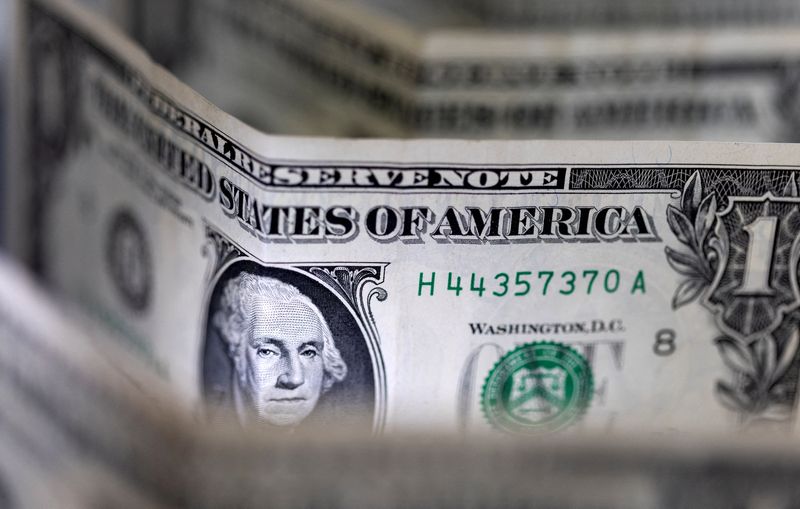By Peter Nurse
Investing.com - The U.S. dollar posted further gains in early European trade Wednesday, trading at two-year highs on safe haven flows as traders digested slowing global growth, raised geopolitical tensions, and the prospect of more tightening by the Federal Reserve.
At 3:15 AM ET (0715 GMT), the Dollar Index, which tracks the greenback against a basket of six other currencies, traded 0.2% higher at 102.532, the strongest it has been since March 2020 and on course for its best month since 2015.
Russia announced plans to halt gas flows to Poland and Bulgaria from Wednesday amid a standoff over fuel payments, to the benefit of the safe haven dollar.
Russian President Vladimir Putin has decreed that payment from “unfriendly” buyers should be in rubles, helping support his country’s beleaguered currency, while the European Union has responded that would be a breach of sanctions.
This escalation of tensions has added to the reasons traders have chosen to hold the dollar, with strict COVID-19 lockdown in China likely to hit economic growth in the world’s second largest economy while the Federal Reserve is expected to hike interest rates by 50 basis points in May as it seeks to combat inflation at a four-decade high.
EUR/USD fell 0.2% to 1.0618, dropping to a five-year low, amid fears for Europe's energy security, while the weak GfK German consumer confidence index, projected to plunge to a historic low in May, also weighed.
“April has been nasty for the euro, falling over 300 points. The Ukraine war and the hawkish Fed have been a toxic mix for the euro, as investors have dumped the currency and flocked to the safe-haven U.S. dollar,” said Kenny Fisher, an analyst at brokerage OANDA.
USD/JPY rose 0.5% to 127.81, not far removed from its recent 20-year low with the Bank of Japan set to meet overnight.
This central bank has maintained a very accommodative monetary stance, in direct contrast to the hawkish Federal Reserve, but traders see the risk of policy changes to try and arrest the currency's recent weakness.
GBP/USD edged higher to 1.2577, falling to a fresh 21-month low as last week’s weak retail sales data prompted a rethink of the Bank of England’s tightening cycle.
“Tightening expectations for the 5 May BoE meeting have dropped backed to 29bp from 38bp early last week,” said analysts at ING, in a note.
USD/CNY edged lower to 6.5555, with the yuan helped by data showing Chinese industrial profit growth quickened in March, while AUD/USD rose 0.5% to 0.7159 after Australian consumer prices surged at their fastest annual pace in two decades, spurring rate hike speculation.
